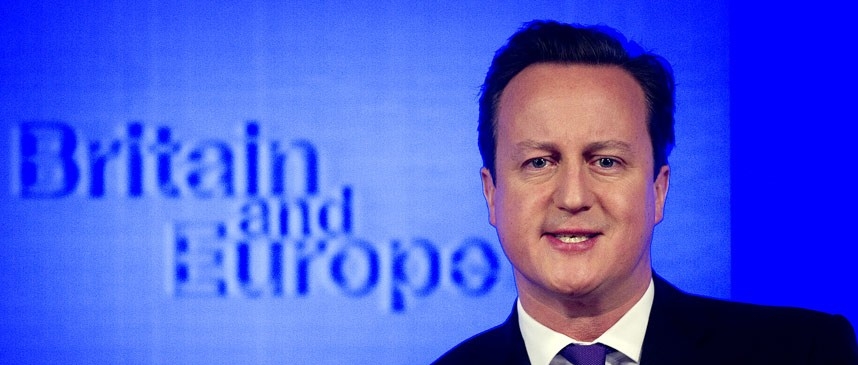
Cameron risks painting himself into an anti-Europe corner
The prime minister promises that if he wins the general election in May he will try to reform the EU and then hold a referendum in 2017. Until recently, the ideas he has floated – more powers for national parliaments, restrictions on benefits for EU migrants and safeguards for the single market – have been seen by other EU governments as negotiable.
But now he is looking for new ways to cut migration from the EU – including caps on numbers. Action is necessary, he believes, because the combination of a prosperous Britain and a stagnant eurozone will attract crowds to the UK for years to come. However, his partners regard free movement of labour as an essential pillar of the single market. Allowing the UK to set quotas on migrants would require both treaty change, which nobody wants, and unanimity, which is inconceivable – even with the threat of a British exit concentrating minds. If Mr Cameron makes quotas his priority and then fails to achieve them, how can he campaign to keep his country in the EU?
He is trying the patience of other EU leaders. They understand he wants to fight off the anti-EU UK Independence party, hold the Tories together and win the election. But they think he is so focused on the short-term tactics of party advantage that he is failing to think through their consequences.
They claim that he invariably bows to pressure from hardline eurosceptics (that is not always true: he is defying them by asking parliament to opt in to the European arrest warrant). They also lament his “transactional” approach to EU politics, saying he talks to other leaders on specific problems but fails to invest time in building relationships, leaving him with few good friends. The anti-EU rhetoric of many in his party has done nothing for the British brand; in much of Europe, even politicians who agree with London on particular issues are unwilling to say so in public.
The row over the European Commission’s demand last month for the UK to pay an extra €2.1bn – because of a revaluation of the British economy – has made Mr Cameron more eurosceptic. The Financial Times broke the story before either he or the commission’s president knew about it. The technocratic and politically inept response from Brussels – that Britain must pay up by December 1 or face fines – provoked the prime minister into a defiant refusal to meet that deadline.
Some senior Tories fear the intensifying mutual distrust is dividing Britain from its partners. They think the prime minister’s focus on immigration makes the issue more salient and thus helps Ukip. These Conservatives wish business leaders would speak out about the risk that his demands on immigration will hasten a British departure.
He seems to believe he can beat a eurosceptic drum to unite his party and help win the election; then be tough with his partners so that they give him what he wants; and finally talk about the benefits of EU membership in a referendum campaign. But even if he somehow wins a deal that allows him to back membership, his refusal to make the case for Europe until the last minute is risky. Many governments will be unwilling to work with him on EU reform until he talks positively about Europe. And at this rate, the British people may be so hostile to the EU by 2017 that – whatever Mr Cameron says in the campaign – they will vote to leave.
Charles Grant is director of the Centre for European Reform.
